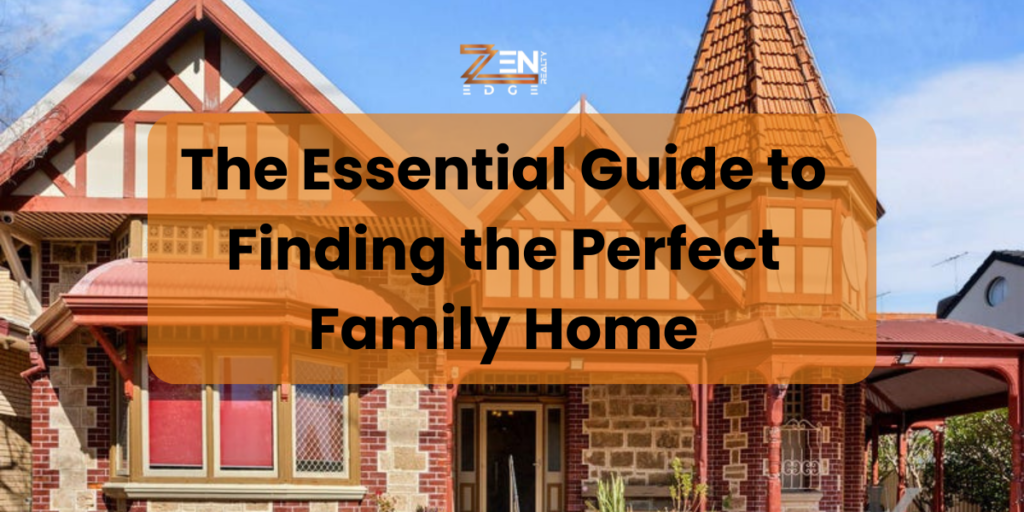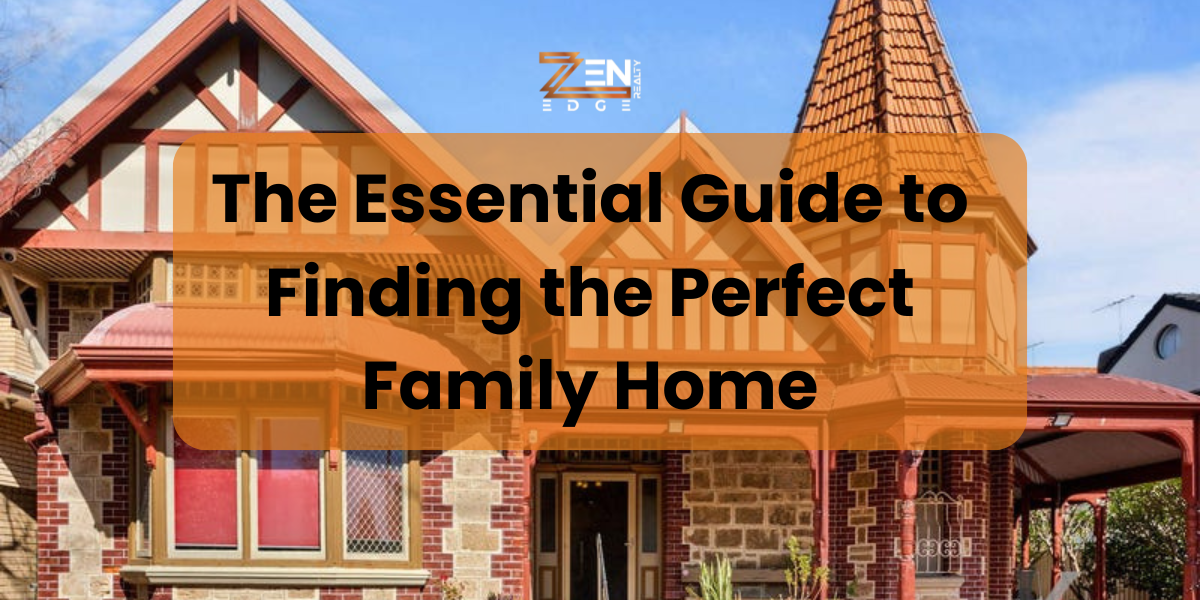
Introduction
Finding the perfect family home is an exciting journey, but it can also be filled with challenges and tough decisions. It’s crucial to find a place that meets your family’s needs and offers a safe, nurturing environment for everyone. From picking the right neighbourhood to ensuring the property has all the essential features, every step is important.
When searching for a family home, it’s not just about the number of bedrooms or the size of the backyard. It’s about finding a space where your family can grow and thrive. This means considering factors like school proximity, access to parks, and the overall vibe of the community.
Moreover, you need to think about the logistics of making a competitive offer and successfully closing the deal. The buying process can be complex, and being well-prepared can help you navigate it smoothly. By arming yourself with the right knowledge and strategies, you can find a home that perfectly suits your family’s needs.
In this article, we will walk you through the essential steps for finding the perfect family home, from identifying your priorities to evaluating properties and making a competitive offer.
Identifying Your Family’s Needs and Priorities
The first step in finding the perfect family home is to identify your family’s specific needs and priorities. Start by considering the size and layout of the home. How many bedrooms and bathrooms do you need? Is an open-plan living area important for your family dynamics, or do you prefer separate rooms for more privacy?
Beyond the basics, think about other features that could enhance your family’s lifestyle. Do you need a large backyard for the kids to play in? Is a home office necessary for work-from-home arrangements? Make a list of must-have features and nice-to-have features to help narrow down your choices.
Next, consider the future. Will your family be growing in the coming years? If you plan to have more children, looking for a home with extra space to accommodate your expanding family may be wise. Also, think about potential lifestyle changes that could affect your home needs, such as caring for elderly parents or transitioning to remote work permanently.
By understanding what’s most important to your family, you’ll be better equipped to find a home that fits your life now and in the future. This clarity will make the search process smoother and more focused.
Choosing the Right Neighbourhood
Choosing the right neighbourhood is just as important as choosing the right home. A great neighbourhood can significantly enhance your family’s quality of life. Start by considering the proximity to essential services such as schools, healthcare facilities, and supermarkets. Being close to these amenities can save you time and make daily routines easier.
Safety is another critical factor. Research local crime rates and, if possible, talk to potential neighbours to get a feel for the area. Well-lit streets, active neighbourhood watch programs, and a visible police presence can indicate a safer community.
Think about the community vibe and whether it aligns with your family’s lifestyle. Are there parks, playgrounds, and recreational facilities nearby? How vibrant is the community life? Attending local events or visiting neighbourhood cafes and shops can give you a sense of the community atmosphere.
Public transportation and commute times are also worth considering, especially if you work in the city. Shorter commutes leave more time for family and leisure activities. Additionally, check for any planned developments or infrastructure projects that might impact the neighbourhood positively or negatively in the future.
By carefully selecting the right neighbourhood, you can ensure that your family’s home is in an area that meets your needs, supports your lifestyle, and fosters a strong sense of community.
Evaluating the Property: What to Look For
Once you’ve narrowed down your neighbourhood and honed in on potential homes, evaluating each property is key. Start by inspecting the structural elements of the house. Check the foundation for cracks or signs of settling, and assess the roof for leaks or damage. Ensuring the home is structurally sound can save you from costly repairs down the line.
Inside the home, look closely at the condition of the walls, floors, and ceilings. Any signs of moisture or mould could indicate water damage. Verify that the plumbing and electrical systems are up-to-date and functioning properly. Turn on taps, flush toilets, and test light switches to make sure everything works as it should.
Additionally, evaluate the layout to see if it suits your family’s needs. Does the kitchen offer enough space for meal prep and family gatherings? Are the bedrooms spacious and well-located? Consider future needs too, like potential home expansions or remodels.
Make a checklist for each viewing to ensure you don’t overlook anything important. If you’re unsure about any aspect of the property, consider bringing in a professional inspector. An inspection report can provide you with detailed insights and help you make an informed decision.
Making a Competitive Offer and Closing the Deal
Once you’ve found a home that ticks all the boxes, it’s time to make a competitive offer. Start by researching the local market to understand the property’s value. Look at recent sales of similar homes in the area to gauge a fair price. This information can bolster your offer and make it more appealing to sellers.
Work with your real estate agent to draft a solid offer. Ensure it includes all necessary contingencies such as financing approval and a satisfactory home inspection. These contingencies protect you in case any unforeseen issues arise. Your agent can guide you on how much to offer, balancing competitiveness with your budget.
Be prepared for a counteroffer from the seller. Negotiating is a common part of the buying process. Stay flexible but clear on your maximum budget to avoid overextending yourself.
Once your offer is accepted, the closing process begins. Engage a solicitor to help with the legal paperwork and ensure everything is in order. You’ll also need to finalise your mortgage details and prepare for the settlement day. This is when you’ll transfer the funds, sign the final documents, and receive the keys to your new family home.
Discover the ZenEdge Realty advantage! Get an expert appraisal, confidently sell, and find your dream home with us. Get an Appraisal, Buy, or Sell with the Experts! Visit www.zenedgerealty.com.au.
Conclusion
Finding the perfect family home involves several crucial steps, from identifying your needs and choosing the right neighbourhood to evaluating the property and making a competitive offer. Each step requires careful consideration to ensure your new home meets your family’s current and future needs.
As you embark on this journey, keep in mind the importance of thorough research and preparation. By taking the time to understand what you want and need in a home and neighbourhood, you can make more informed decisions. Evaluating properties closely and making strategic offers adds another layer of confidence to your process.
If you’re ready to take the next step in finding the perfect family home, ZenEdge Realty is here to assist you. Our team of experts can provide the guidance and support you need. If your on the market to buy a house in Perth for your dream home, contact us today to start your journey towards your dream home.

Leave a Reply